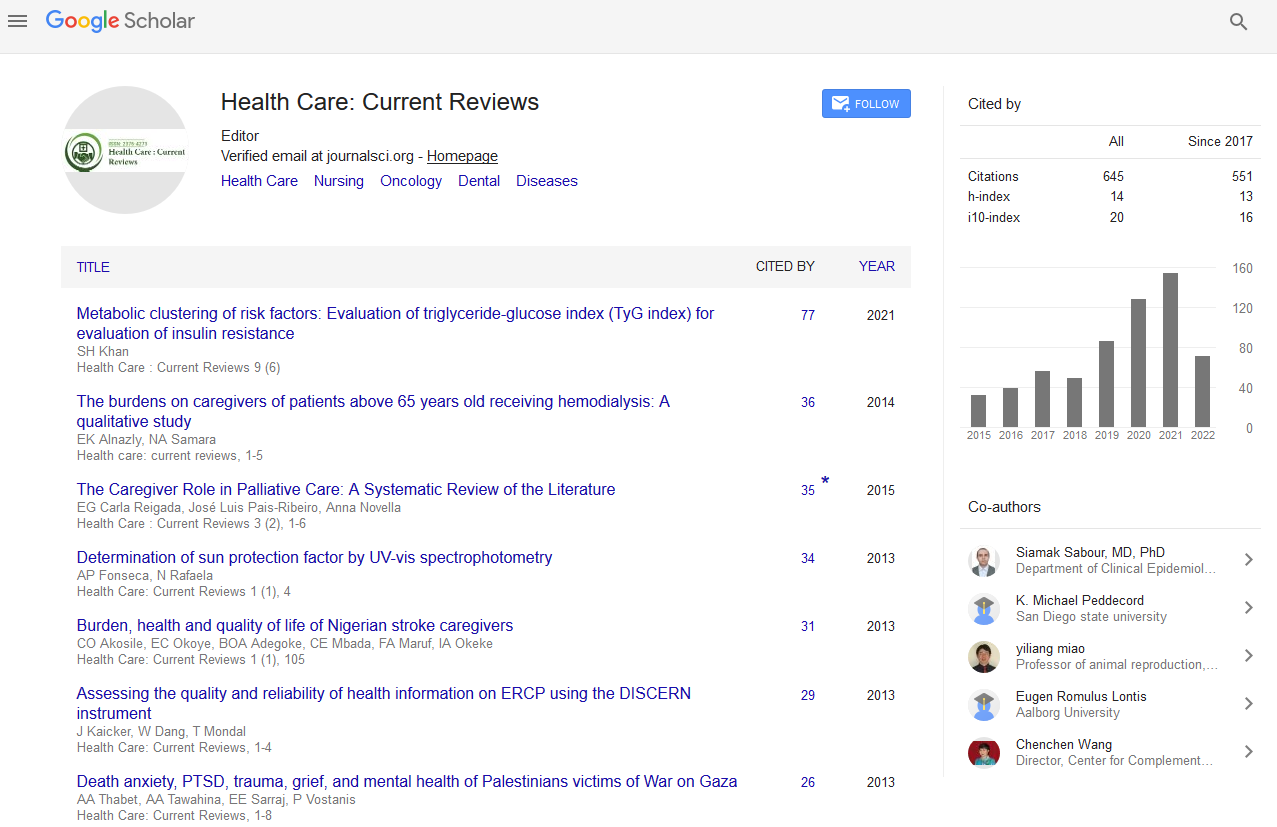PMC/PubMed Indexed Articles
Indexed In
- Open J Gate
- Academic Keys
- RefSeek
- Hamdard University
- EBSCO A-Z
- Publons
- Geneva Foundation for Medical Education and Research
- Google Scholar
Useful Links
Share This Page
Journal Flyer

Open Access Journals
- Agri and Aquaculture
- Biochemistry
- Bioinformatics & Systems Biology
- Business & Management
- Chemistry
- Clinical Sciences
- Engineering
- Food & Nutrition
- General Science
- Genetics & Molecular Biology
- Immunology & Microbiology
- Medical Sciences
- Neuroscience & Psychology
- Nursing & Health Care
- Pharmaceutical Sciences
Agronomic biofortification of cereal grains with zinc: A vital approach to overcome the zinc malnutrition from Indian population
3rd Indo-Global Summit & Expo on Healthcare
October 05-07, 2015 New Delhi, India
Yashbir S Shivay
ICAR-Indian Agricultural Research Institute, India
Scientific Tracks Abstracts: Health Care: Current Reviews
Abstract:
Zinc deficiency in human nutrition is widespread in developing Asian and African countries where cereal grains are the staple food. Efforts are therefore underway to develop cereal genotypes with grains denser in Zn by traditional plant breeding or using genetic engineering techniques. This approach requires a long period and adequate funds. However, the products of genetic engineering are not well accepted in many countries including India. Also, there is a trade-off between yield and grain biofortification. Agronomic biofortification offers to achieve this without sacrificing on yield, which India cannot afford considering population pressure and with no problem of product acceptance. From the viewpoint of biofortification, foliar application of zinc has been reported to be better than the soil application of Zn. For foliar application of chelated EDTA-Zn and other Zn fertilizers viz., Zn sulfate heptahydrate are better than other sources. Soil applied water soluble sources of Zn such as Zn sulfate heptahydrate are also better for increased productivity and Zn concentration in the economic produce of the crops. Agronomic biofortification depends upon management practices, soil factors and plant factors genetic and agronomic biofortification are complementary to each other. Once the genotypes having denser grains are developed, they will have to be adequately fertilized with Zn. However, much more research in agronomy; soil science and plant physiology is needed to understand the complex soil plant management interaction under different agro-ecological conditions under which cereals are grown. The situation is more complex for rice which is grown under flooded, upland and intermediate water conditions. However, in nutshell it can be concluded that agronomic biofortification is the easiest and fastest way for biofortification of cereal grains with Zn or other micro mineral nutrients in developing Asian and African countries, where cereals are the staple food. Agronomic biofortification is the only way to reach the poorest of the poor rural masses that will never have money to buy mineral supplements nor can afford to improve the components of their diet by incorporating animal products.
Biography :
Yashbir S Shivay has completed his PhD from G.B. Pant University of Agriculture & Technology, Pantnagar and Postdoctoral studies from Zhejiang University (1998-99), China and was a Visiting Scientist (2003-04) to the Agricultural University of Norway, Visiting Specialist (2008) to The Norwegian University of Life Sciences, Norway. He is the Principal Scientist, in division of agronomy, IARI a premier agricultural research institute in India. He has published more than 160 research papers in reputed journals and has been serving as an Editorial Board Member of repute. Presently, he is serving as Secretary, Indian Society of Agronomy for the biennium 2015-16.
Email: ysshivay@hotmail.coms


